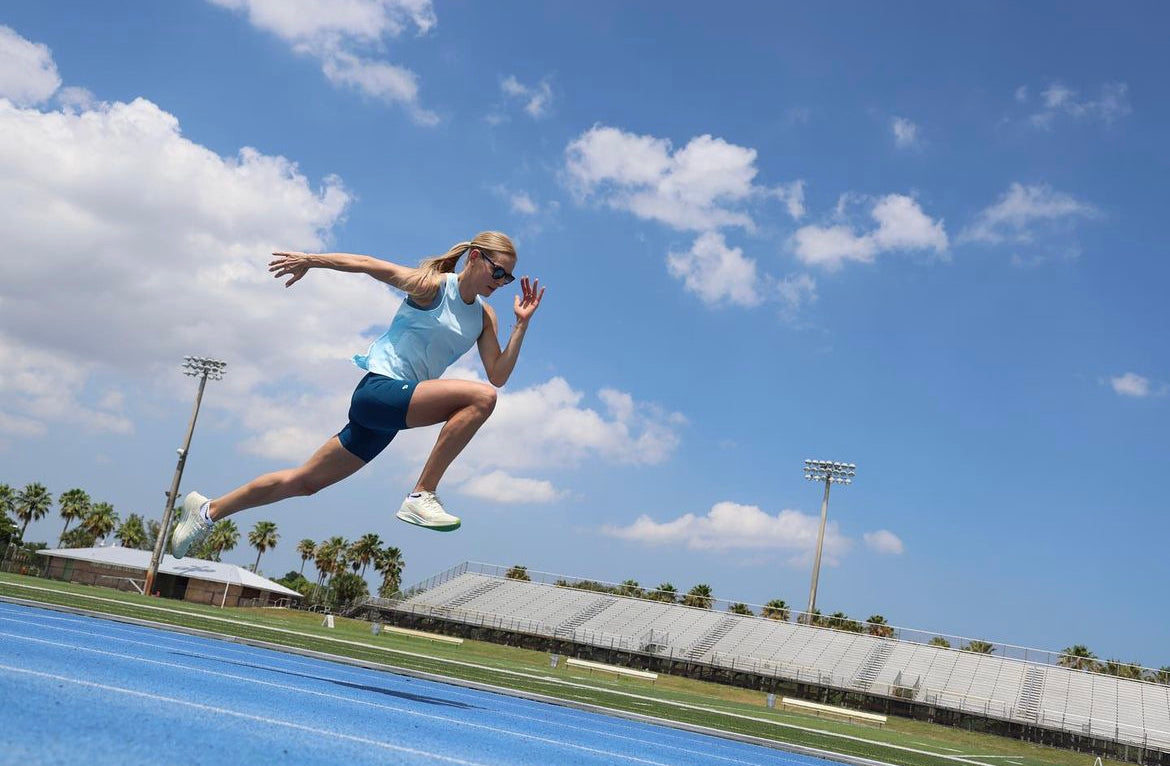
Wake Up To The Power Of One
Are Recovery Drinks for Athletes Worth it?
As athletes, we constantly seek ways to optimize performance and recovery. One hot topic for optimization is recovery drinks. Often marketed as essential aids in post-workout recovery, recovery drinks promise faster recuperation and improved performance in your next session. All things we’re absolutely down for.
Do they live up to the hype?
We’re about to delve into the science behind recovery drinks, their efficacy, and whether athletes truly stand to benefit from incorporating them into their training regimen.
“I think the biggest thing for athletes is recovery. Being able to bounce back from week to week, practice to practice—to come back in top form.” — Larry Fitzgerald

Find out below if recovery drinks for athletes are really worth it.
What Makes a Recovery Drink?
If you’ve been here before you know we have a Law of Hydration which is all about drinking water and how it makes you a better athlete. So, why reach for a recovery drink when you could have a tall, icy glass of H20?
A recovery drink, aka. a sports drink or post-workout beverage, typically contains a combination of carbohydrates, protein, electrolytes, and sometimes additional ingredients like vitamins and minerals. The main goal is to replenish glycogen stores, repair muscle damage, and restore electrolyte balance following intense physical activity—not just replenish fluids. More than just a glass of water, they can actively give your system the things it needs to make the most out of a grueling session or return to baseline levels after massive depletion.
The Science Behind Recovery
There are 3 key components of a recovery drink, so let’s look at the science behind those components before deciding if they actually work for athletes.
1. Glycogen Replenishment
During exercise, especially prolonged or intense sessions, the body's glycogen stores become depleted for energy. Glycogen is the primary fuel source for muscles during high-intensity exercise and is a favourite for those endurance athletes we know and love. Think: triathletes and long-distance swimmers, runners, or cyclists. We know a lot about eating carbs before a workout (Hello, carb-loading!), but consuming carbs post-exercise also helps replenish these stores more rapidly, potentially enhancing recovery.
2. Muscle Repair and Growth
We all know protein is crucial for muscle repair and growth. Intense exercise can cause microtears in muscle fibers, and consuming protein post-workout provides the necessary building blocks (amino acids) for muscle tissue repair and synthesis. Some recovery drinks boast a combination of carbohydrates and protein in a specific ratio believed to optimize recovery processes, offering an experience much like whipping up a protein shake at the gym post session.
3. Electrolyte Replenishment
Electrolytes like sodium, potassium, and magnesium are lost through sweat during exercise, and their depletion can lead to fatigue and impaired muscle function (see our Law of Hydration to find out more). Recovery drinks often contain electrolytes to help restore balance and aid in hydration post-exercise.
So, Do They Work?
While the theory behind recovery drinks seems sound, their actual efficacy is a subject of debate among researchers and sports nutritionists. The degree of benefit may vary depending on factors such as individual athlete characteristics, exercise intensity and duration, and overall dietary habits.
What to Consider
As always, there’s no one-size-fits-all approach. While recovery drinks may be the bee’s knees for one person, it could be the opposite for the next. Here’s what to consider:
Individual Variability
Factors such as body composition, metabolic rate, training volume, and personal preference all play a role in determining whether a particular recovery drink is beneficial.
Balanced Nutrition
While recovery drinks can be convenient and provide targeted nutrients, they should not replace whole foods in an athlete's diet—just like protein shakes and bars. Whole foods offer a way wider array of nutrients that contribute to overall health and performance.
Hydration
As we’ve mentioned extensively, hydration is a critical aspect of recovery, and athletes should prioritize fluid intake post-exercise, especially if they've sweated heavily during their workout. While recovery drinks can contribute to hydration, plain water is an effective option.
The Potential Downsides of Recovery Drinks
We promised a well-rounded look at recovery drinks, so naturally we need to include the potential drawbacks these drinks can have. Check it out:
Added Sugar and Calories
Many commercially available recovery drinks contain added sugars to improve taste. While carbohydrates are necessary for glycogen replenishment, excessive sugar consumption can contribute to an increased calorie intake, leading to energy crashes and fluctuations in blood sugar levels. In the long run, this can severely affect performance and energy levels, while also derailing your goals.
Cost
Quality recovery drinks can be relatively expensive compared to whole foods or homemade alternatives. The recurring cost of purchasing pre-packaged recovery drinks can add up and might not be sustainable.
Overemphasis on Supplements
It’s important to never rely too heavily on recovery drinks as a quick fix for post-exercise nutrition. While recovery drinks can provide targeted nutrients in a convenient format, they should not overshadow the importance of a well-rounded diet.
Homemade Recovery
Want to try a homemade alternative first? Check out this website for a few recovery smoothie and meal recipes including a vegan option. You can also make a sugar-free electrolyte drink by adding water, a pinch of salt, and your favorite sugar-free drink crystals.
Which Athletes Should Drink Recovery Drinks?
Despite drawbacks, there are definitely instances where athletes can benefit from consuming recovery drinks. For example, during multi-day competitions or intense training periods where rapid glycogen replenishment is crucial for maintaining performance levels. Again, think Ultras, Triathlons, tournaments, etc. When quick and convenient nutrient delivery is paramount, recovery drinks can serve as a practical option for recovery between sessions. Another critical scenario is with hot and humid conditions. The electrolyte replenishment provided by recovery drinks to maintain hydration (and performance) could make or break the end result.
Are Recovery Drinks for You?
While recovery drinks can offer convenience and targeted nutrition for athletes seeking to optimize their post-workout recovery, you have to weigh the potential downsides alongside the benefits. Be mindful of added sugars and always maintain a balanced approach to nutrition despite the convenience. Assess your specific needs, preferences, and goals to determine whether incorporating recovery drinks aligns with your objectives. In cases where your electrolytes and nutrients are depleted significantly, adding a recovery drink can be incredibly beneficial. On a normal day, however, it may be unnecessary.
What About CBD Recovery?
Go to the DRYWORLD shop and you’ll see that we offer a variety of CBD products for athletes—including our recovery drink. On huge days where you’re pushing yourself to the max, CBD can be an excellent choice in helping the recovery process for three major reasons:
1) Anti-Inflammatory effects
2) Pain management
3) Stress reduction
All of these aspects can be helpful for athletes in achieving peak performance and allowing for quick recovery. Especially in a tournament or ongoing setting, where your body is put under extreme stress and demands, the boost of CBD in your recovery drink can optimize your recovery. Find out more in this blog post.
“A decline in performance should lead to a search for its cause and to a focus on the quality of your recovery.” — Rountree Sage
Check out our 3 newest collections
CoreD Pro

HauteD

FreeD

Subscribe for Newsletter
The latest news, events and stories delivered right to your inbox



